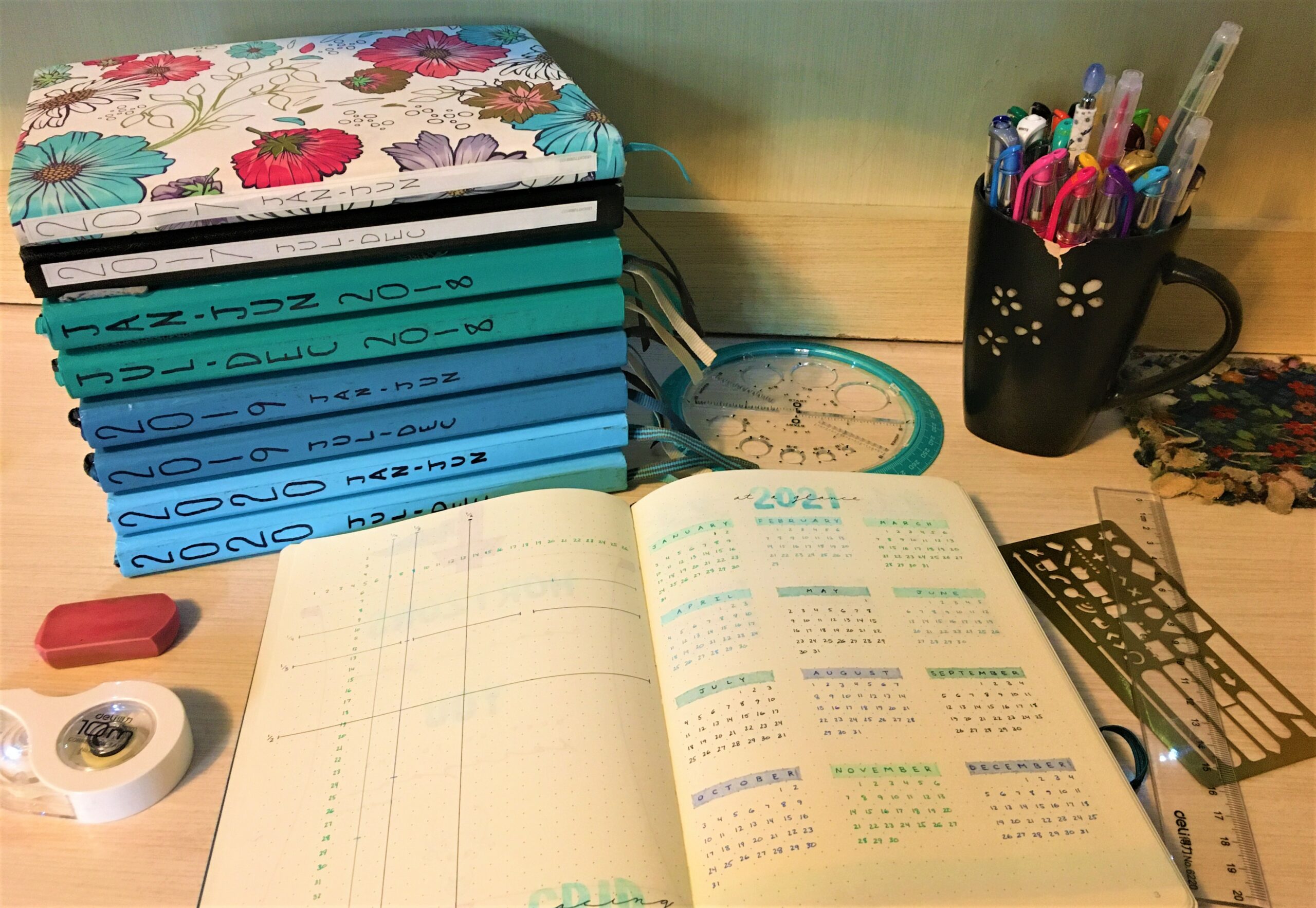What I Learned from Bullet Journaling for 4 Years
In January of 2017, I started my very first bullet journal. Prior to that, I had spent years trying to establish better habits and planning, to varying degrees of success. But starting that first bullet journal definitely marked a turning point, and I’ve kept up with it almost every single day over the past four years. So this week I decided to share some of what I’ve learned from bullet journaling, and how it has shaped my daily life and routines.
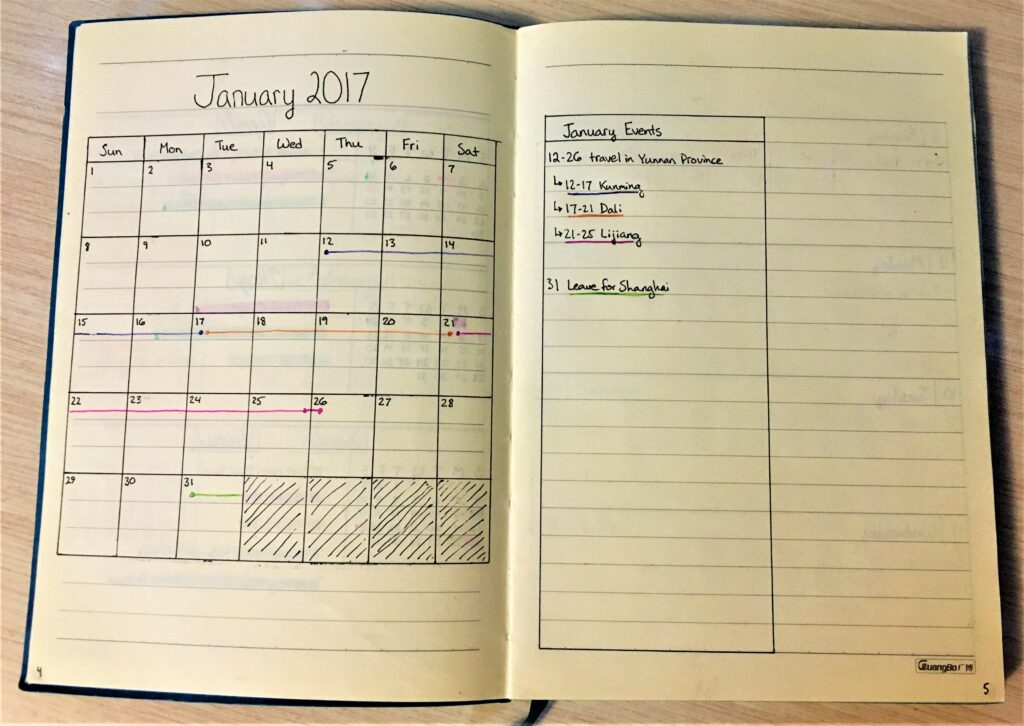
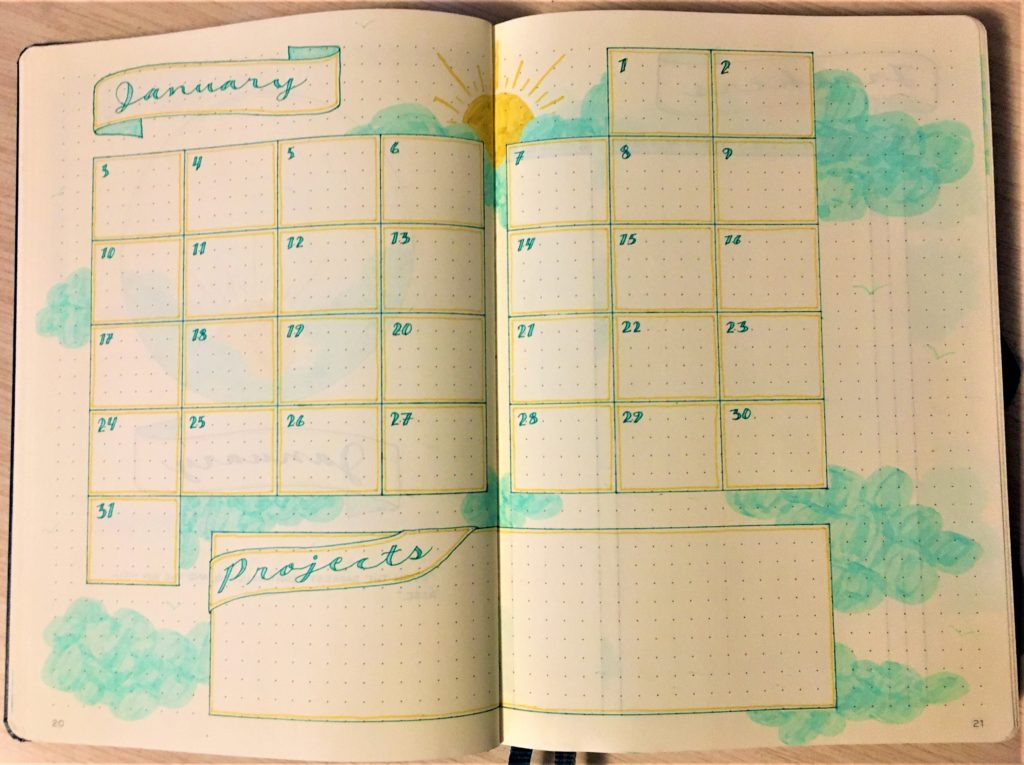
1. Break large goals down into smaller steps and check them off as you go.
This may be the single most effective goal-setting practice I have learned. And it was the first element of bullet journaling I ever implemented. Before I started my first “official” bullet journal, I made checklists for my big projects so I could see my progress. So the journal was simply the next step: a central location where I could have all of those lists on hand and easy to locate.
2. Mistakes happen. Deal with it.
Sometimes a mistake is as small as a stray pen stroke. Other times it’s a miscounted number of pages or an entire calendar layout of dates written wrong.
When a mistake happens, and it’s too big for whiteout or correction tape, you can either tear out the page and start over, or you can find a creative way to turn it into something else.

In my last journal, I suddenly found myself running out of pages. I let go of some elements from my daily and weekly pages, and found that I was keeping up with something I didn’t actually need.
I’ve learned not to agonize so much over mistakes, and instead to accept them as part of being human. I remind myself that point of this journal is to help me stay organized while being something I enjoy, and spending time focusing on what doesn’t look quite right instead of all the things that look great detracts from both of those purposes.
3. Finding the right system makes all the difference.
If you’re trying to stick with an organizational habit and it isn’t working, chances are you aren’t bad at staying organized — you’re trying to use a system that doesn’t work for you. Before bullet journaling, I tried apps and planners and journaling every night. Some of those things worked okay, but once I started bullet journaling something clicked that never had before.
4. Make your habits fun and interesting.
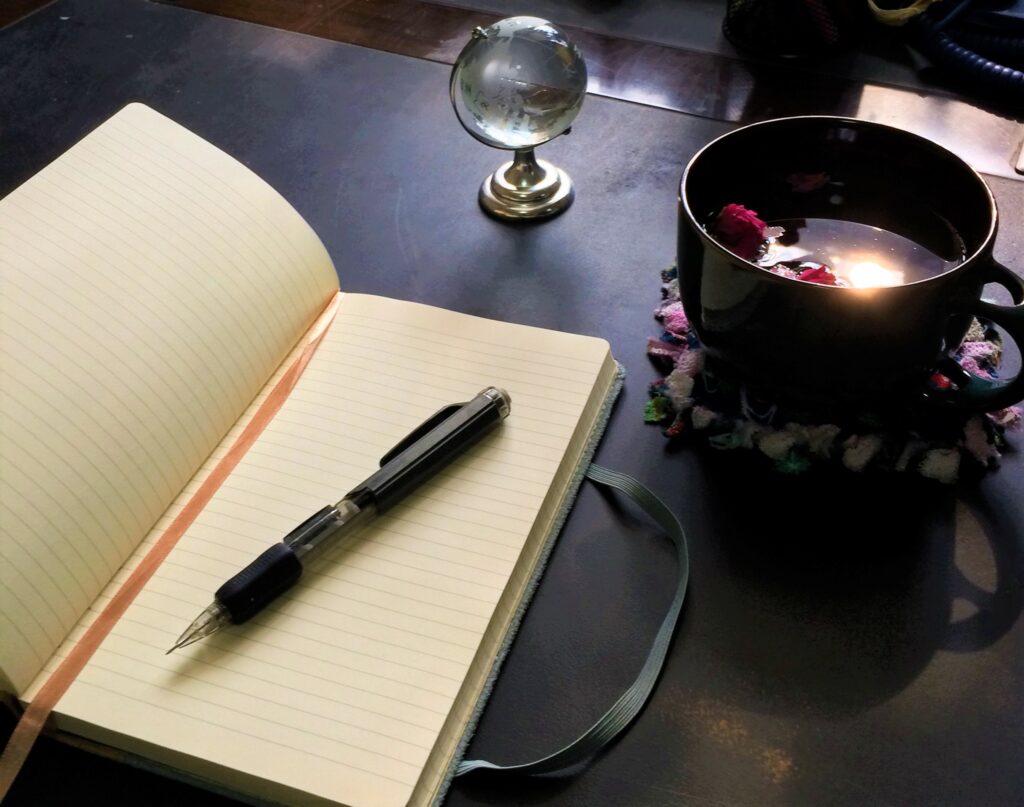
I think we often have this idea that activities must be divided into things we should/must do and things we enjoy/want to do. With this mindset, the things we know we should do are by nature not enjoyable and not what we want to do. And vice versa. But we don’t have to draw such a distinct line between the two. In fact, I would argue that we shouldn’t.
If you’re trying to keep up with a habit just because you know you should, there’s no personal investment and it’s going to be a fight the whole way. Try to find a way to make it something you actually look forward to.
The best way I’ve found for doing this is to pair a “should” with a “want.” For years, I tried to establish a habit of getting up earlier and setting a morning routine, because I knew it was something that would benefit me. I never accomplished this until I started working in my bullet journal every morning, because that gave me something I really, genuinely wanted to get up and do every morning.
5. Adding extra to-dos for the sake of adding extra to-dos is a waste of time and space.
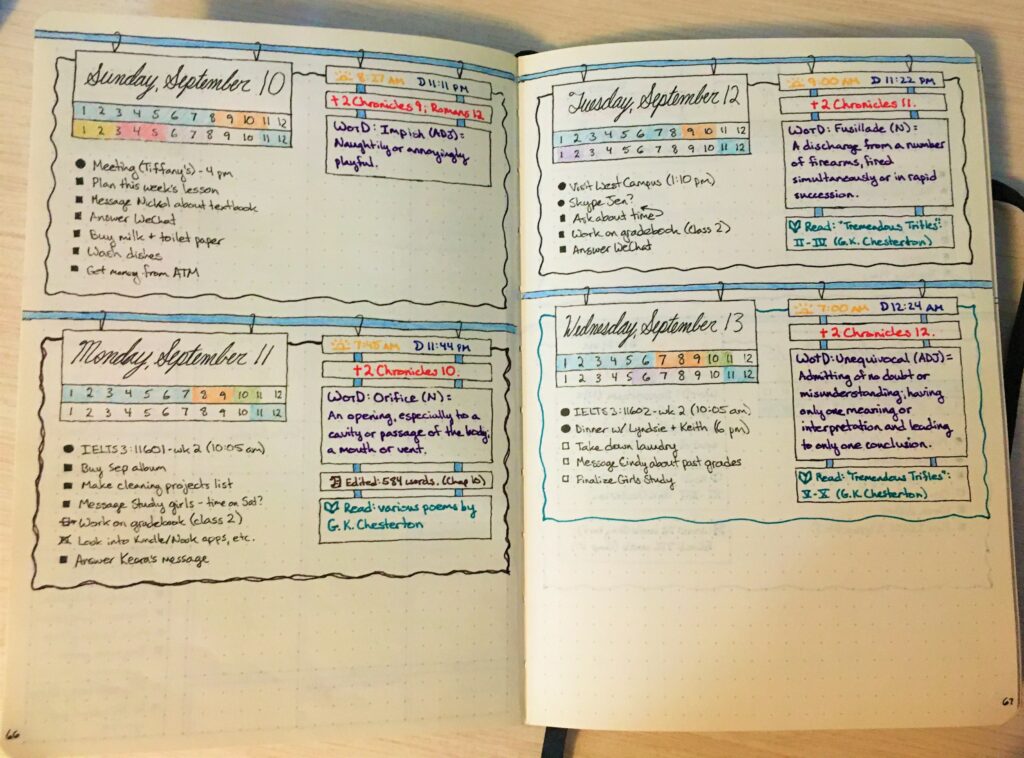
In my first few bullet journals, I looked for things to track to fill up my daily spreads. I was writing down all these little details of my life that, ultimately, I didn’t care about. I was using up space and taking up time with something that didn’t matter.
Over the past couple of years, I’ve pared down the items I include, and my planning process has improved as a result. I’m able to put more time and effort into tracking things that actually help me. No matter how much your bullet journaling system evolves over time, it’s best to keep in mind that the system was created with simplicity in mind.
(I wrote more in this post about how my daily journaling habit never quite worked until I stopped overcomplicating it and made it as easy and accessible as possible.)
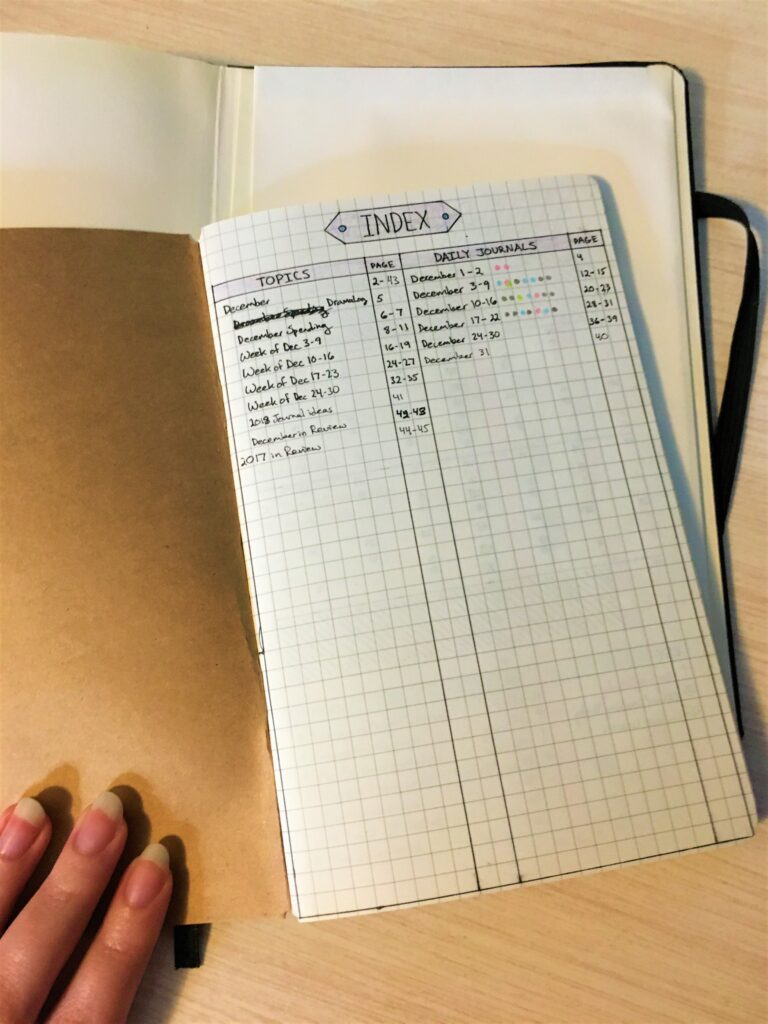
6. Don’t be afraid to try something really different.
As I settled into my bullet journaling routine, I naturally found and created routines and structures within that system that I preferred. Things like how I would lay out the pages and the information I would include became fixed in my mind.
If you’ve been following my bullet journaling posts recently, you know that I’ve experimenting quite a bit, and it’s been a lot of fun. I’m learning new tricks and new things that I didn’t realize I would like.
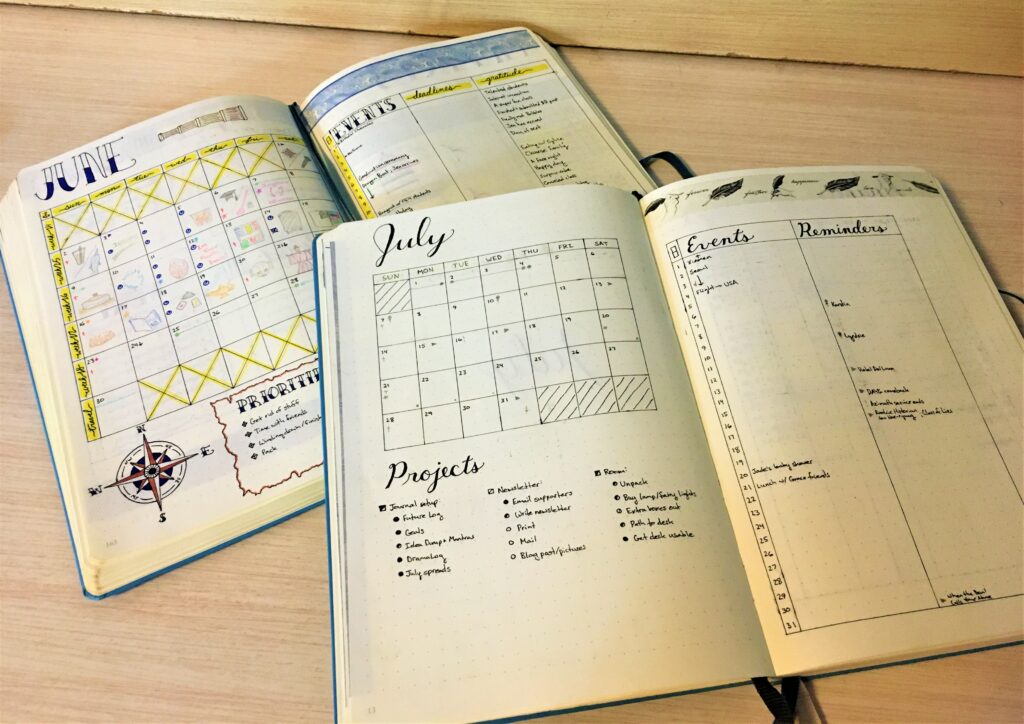
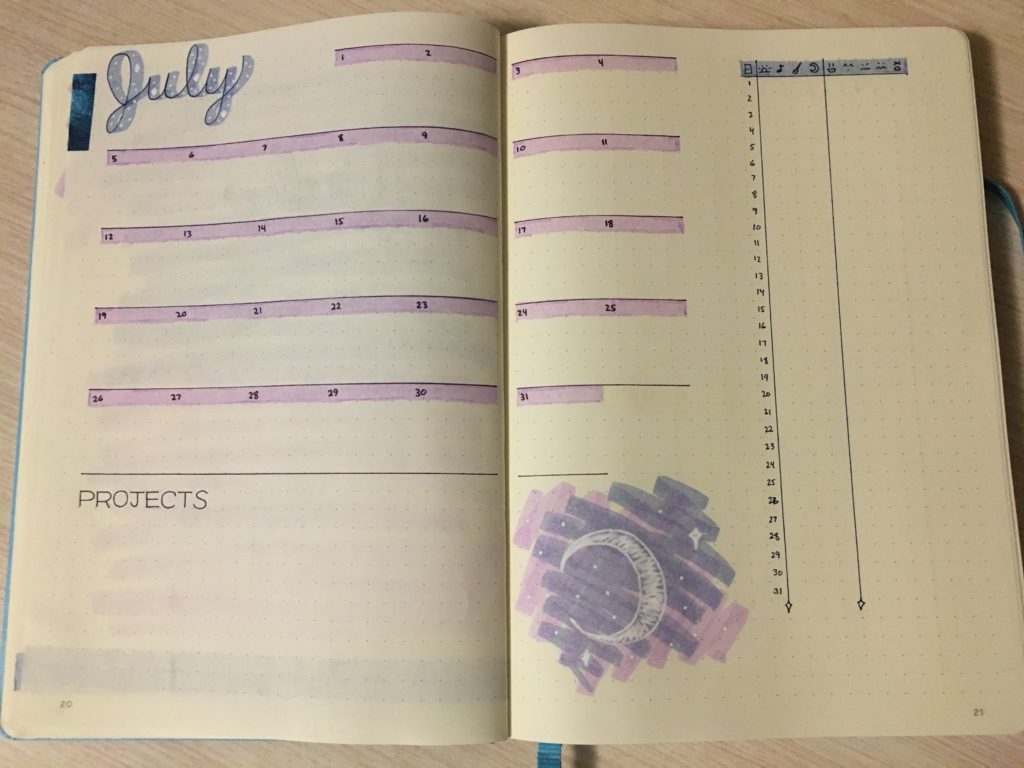
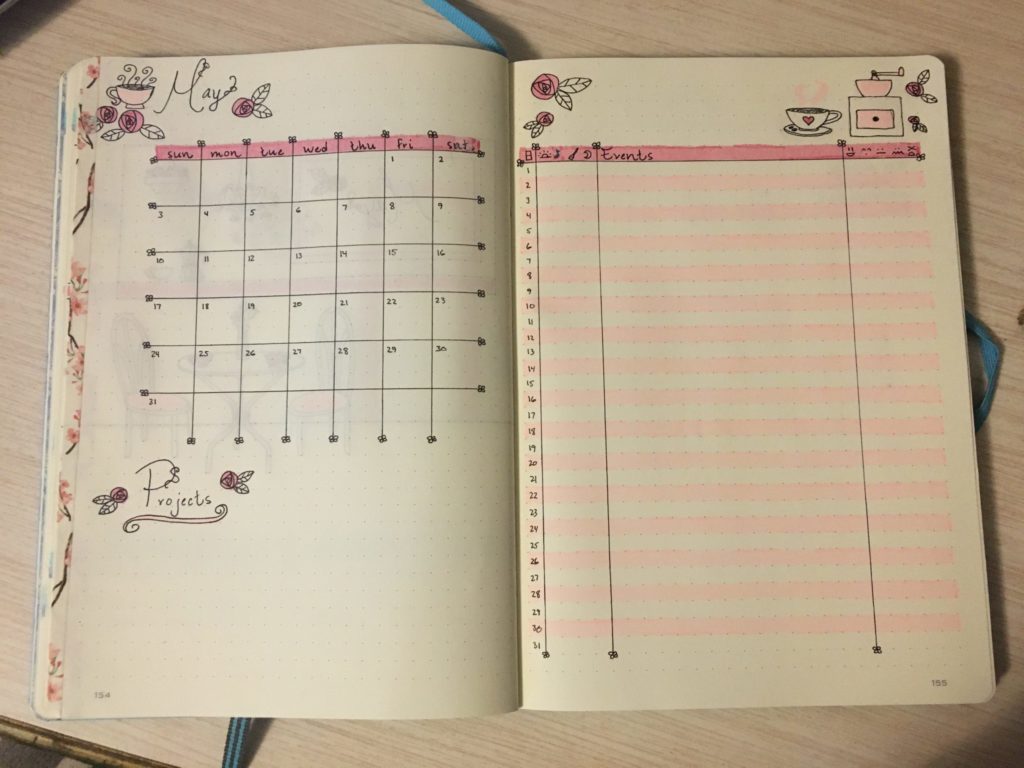
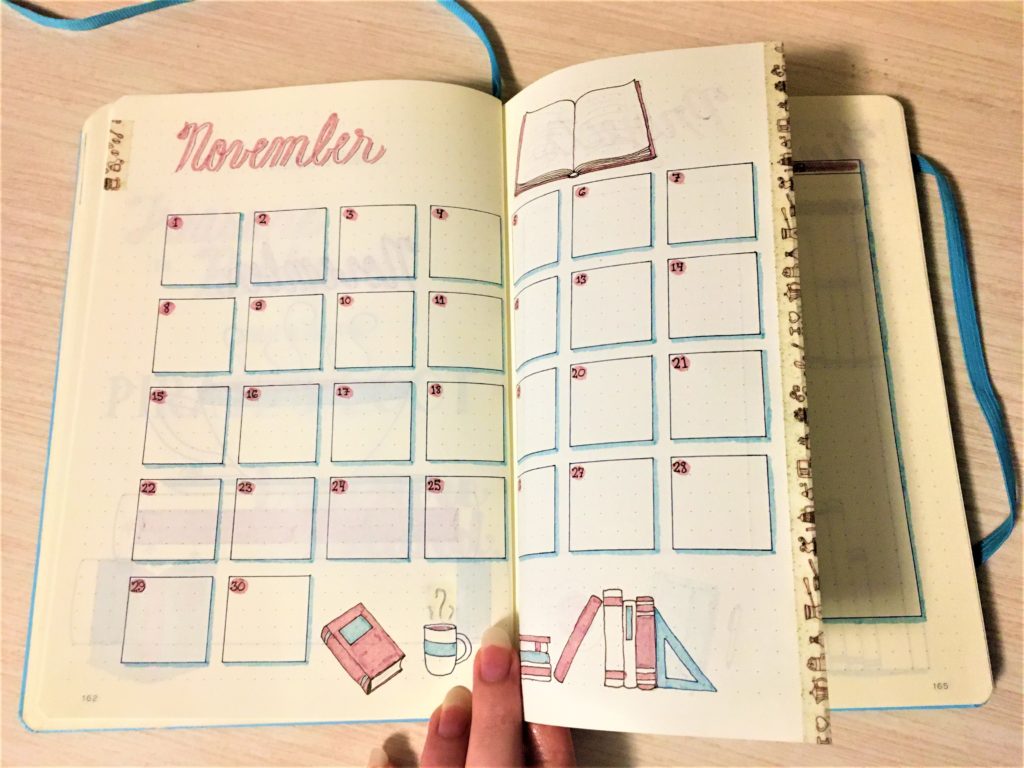
One glance at Pinterest will tell you that there’s no one way to bullet journal. Everyone has different planning needs and systems that work best for them — but sometimes even your own systems can stop working as well as they used to. It’s best to regularly evaluate what is and isn’t serving you, and to change it up as needed.
Which leads me to:
7. Create the structure you need, but don’t chain yourself to it.
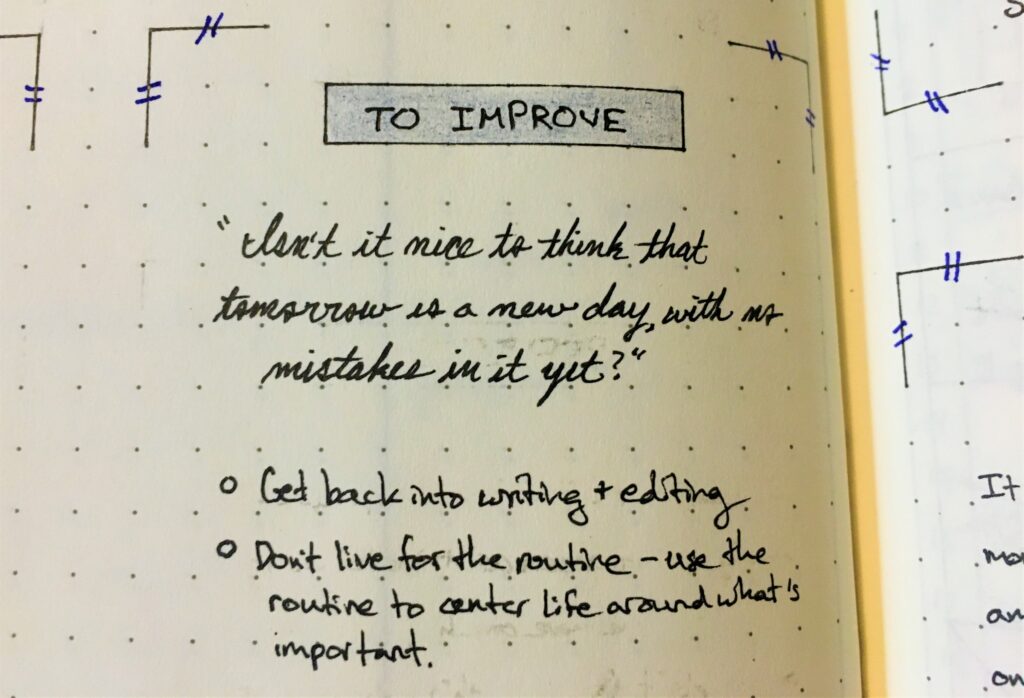
If you’re like me, you crave structure, but you can also tend to box yourself in a little too much. Like in my early bullet journaling days, it can be easy to decide that certain things have to be included when they actually don’t.
But the great thing about bullet journaling is that it’s built for both simplicity and adaptation. Trial and error is the best way to figure out what works for you and what doesn’t. I’ll say it again: don’t be afraid to try something really different.
8. It’s best to change/add a few small things at a time, instead of everything all at once.
A big reason why many of my past goals or resolutions haven’t worked out is that I’ve tried to change too many things at once. That leads to burnout, and that leads to discouragement.
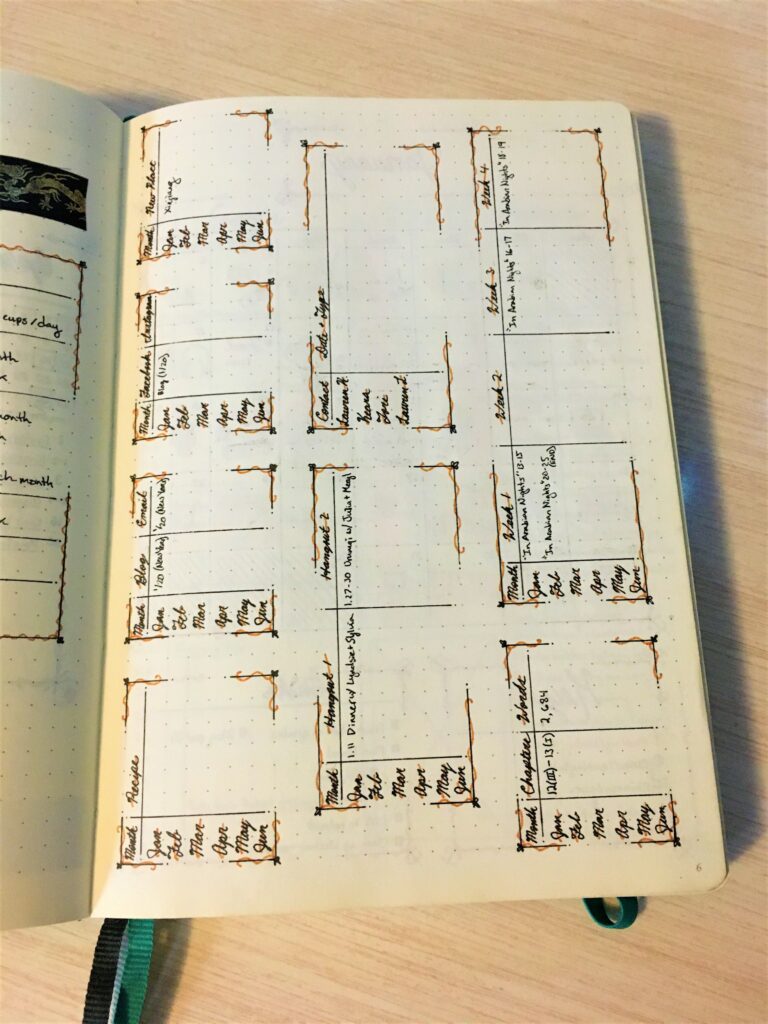
Instead, build momentum with small, simple changes, and add more big ones as you get used to them. Try one or two new habits each month. Add color or decorative elements a little at a time as you get used to how much time it takes.
9. But sometimes a total change is needed.
That said, there are times when you need to throw everything out and start over.
When I moved back to the US, I changed my bullet journaling structures dramatically. While I kept the basic elements I was used to, I also challenged myself to keep things much more simple. I left more blank space, and I stopped trying to track as many things. Changing up everything from my planning routines to page layouts to color schemes really helped me adjust to the life change I was going through at the same time. I was keeping the habit itself constant while making it very clear to my mind that I was settling into a new stage of life and that that was okay.

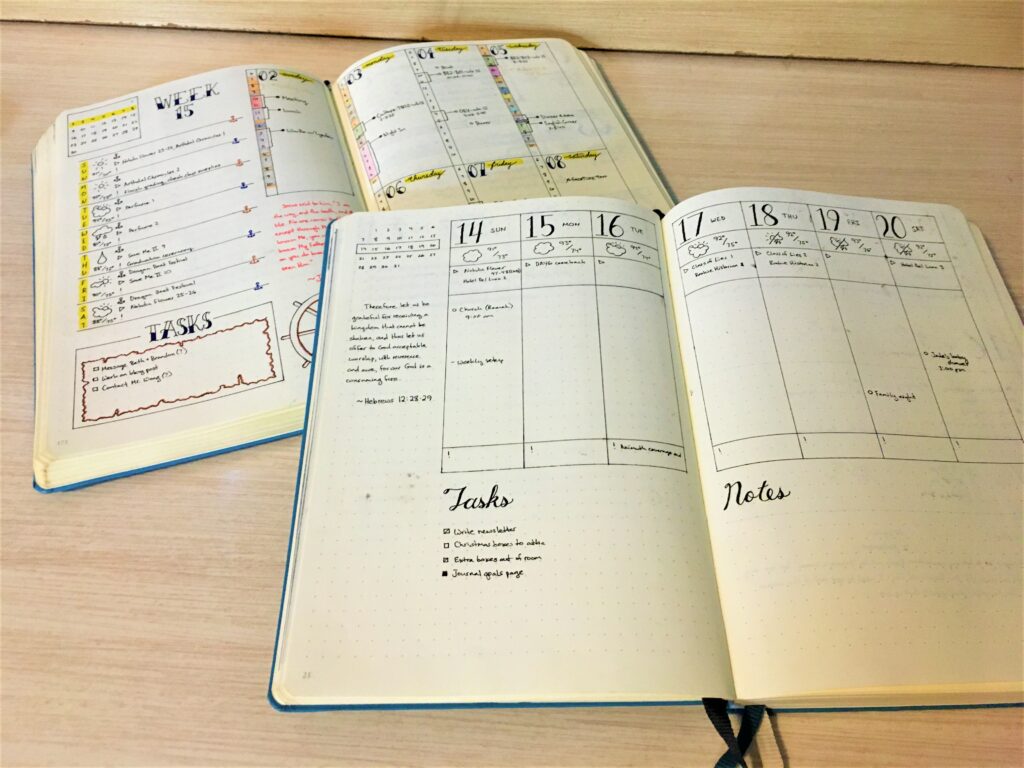
10. Carrying on with a habit after a missed day or two is more important than never missing a day.
Tell me if you’ve been here before: You start a new habit. The first few days go great, and you’re really excited and satisfied. Then life happens and you skip a day. You’re upset with yourself about it, but you tell yourself tomorrow you’ll do better. Tomorrow comes, and you skip the habit again. You’re even more angry with yourself, and by day three you’ve decided (if only subconsciously) that you just can’t do it.
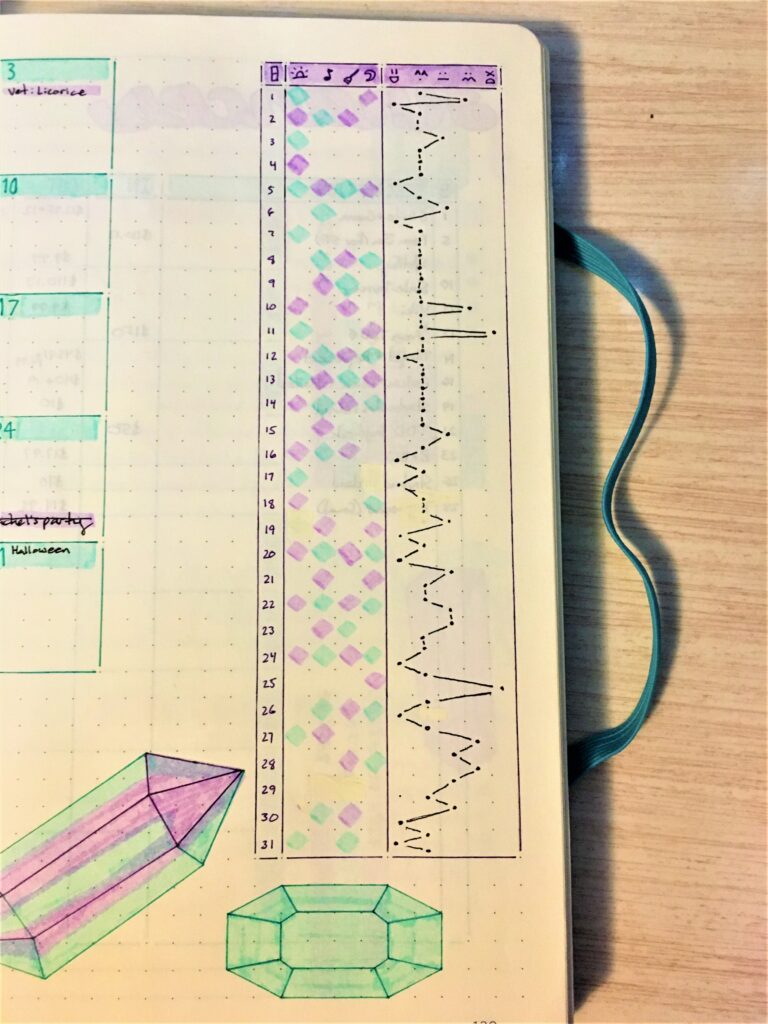
The longer you wait to pick back up the habit, the easier it gets to just not bother. You’ve lost the momentum. But giving yourself grace enough to come back after missing a day or two (or five) and try again can start the ball rolling once more.
11. Making time for yourself is not a waste of time.
Bullet journaling can be as much of a time investment as you want it to be. You can follow the original system and keep everything simple and clean, and only spend a few minutes working on it each day. Or you can make it a full artistic hobby and spend hours each week on decorating and designing. Or you can do something in between. The point is to set aside time — be it fifteen minutes or three hours — to check in with yourself on a regular basis and to relax.
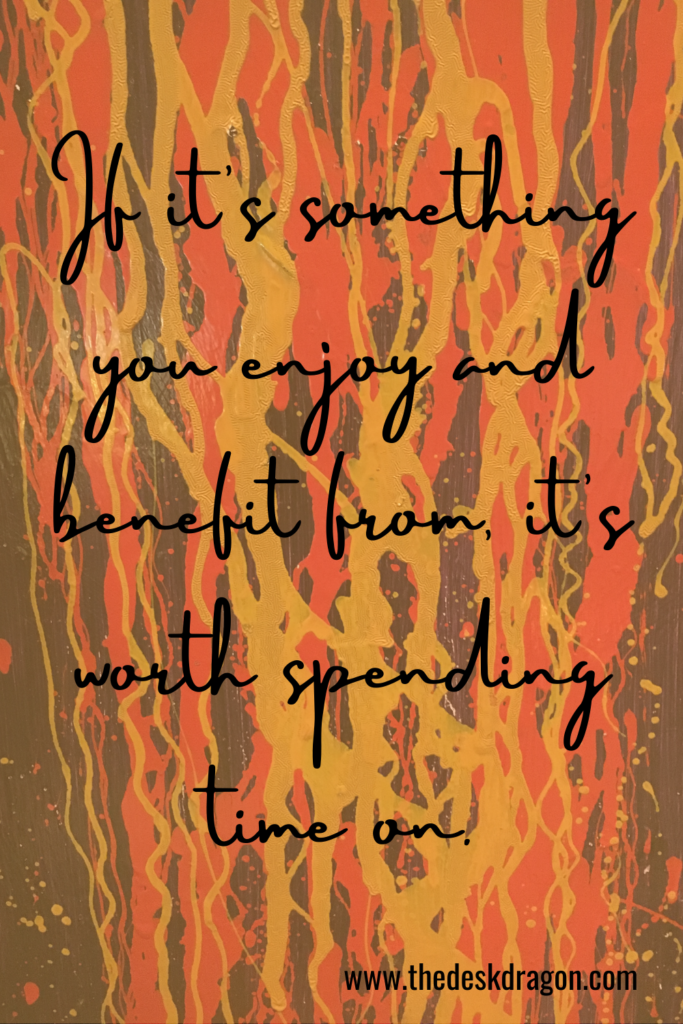
If it’s something you enjoy and benefit from, it’s worth spending time on. And that, I think, is the #1 reason I have kept up with this habit for so long — not only does it keep me organized and on top of things, it’s also something that helps me maintain and improve my relationship with myself.
Overall, what I’ve learned from bullet journaling is how to determine which activities are worth my time and which aren’t. And I’ve also learned to regularly evaluate what is and isn’t working — because that can change over time.
What long-term habits do you keep up with — or what long-term habits would you like to start? What’s keeping you from doing so?

